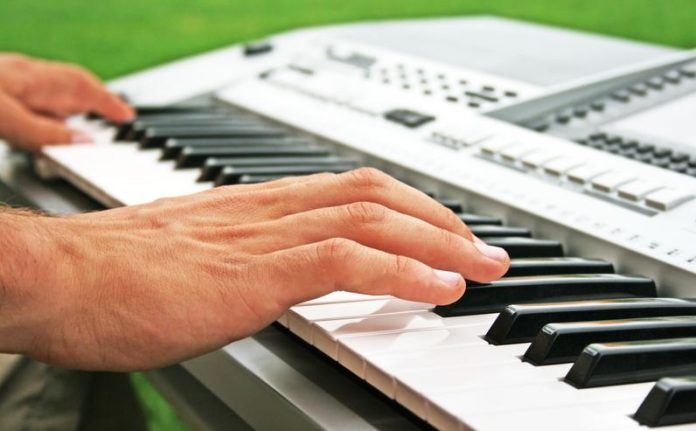If you’ve ever watched musicians in jazz clubs, you’ve seen the most amazing piano players. It seems they can just pick up and play songs they had never heard before, just like that. There are people like that.
Whatever their instrument, they can hear a song once and play it without error or even hesitation! Most need music; carefully written notes and keys and time signatures to guide them. But it’s possible to reverse this trend.
You can actually learn the piano by “playing by ear,” but it’s not the common route. The common way to learn piano is to learn to read music simultaneously.
No matter how they learned, most professional musicians can play by ear, but this was a talent most honed with many years of practice, reading music, listening, ad imitating. Of course, playing by ear CAN be a born talent.
It is said that Mozart could play and compose great and complicated compositions as a child before he ever saw a sheet of music.
But don’t let that fool you into thinking if you could somehow activate this talent in yourself, you wouldn’t need to learn to read music.
Nothing could be further from the truth. This is a necessary skill if you want to be a good musician, and certainly if you’re contemplating going professional.
Reading music gives you access to all the great music every written. You don’t need to have heard it to play it. Plus, learning to read music and play piano from it gives you great hand to eye coordination, improving your overall musicianship.
And, if you learn to play the piano by reading music, you’ll find that just seeing the notes on the page will give you a good idea of what it sounds like.
You’ll be learning to play by ear unconsciously while you’re reading the music. Then you’ll have an extra talent — when you concentrate on learning to play by ear, you’ll easily be able to translate that piece to written music should you need to.
Reading music is an important basic, therefore, and most beginning piano instruction will include music reading instruction.
It will give you all the basics you need to learn to play by ear. Without good technique and a solid understanding of music theory, playing by ear will be much, much more difficult for most people.
So spend time with your scales and positions. These seemingly mundane tasks should be a part of every practice session.
They build good habits, and just as importantly, they train your ear. We’re not all Mozart, but we can gain some of his skill with practice!
Once you reach an intermediate level, you may need to search for a teacher skilled in the art of playing by ear.
This will give you another jump in your abilities. They can teach you tricks of listening that will help you pick out the chord progressions that form the basis of any piano work. They will usually combine this skill with regular music-related teachings.
Whether you want to play for your own pleasure, play for friends and family, or even make a career in music, you’ll be well-served by opting to both read music and hone those playing by ear skills.
If you’ve ignored either, it’s never too late to start. There are even Internet or computer-based courses that teach these skills. Start searching, start learning, and have a lot of fun in the process!

